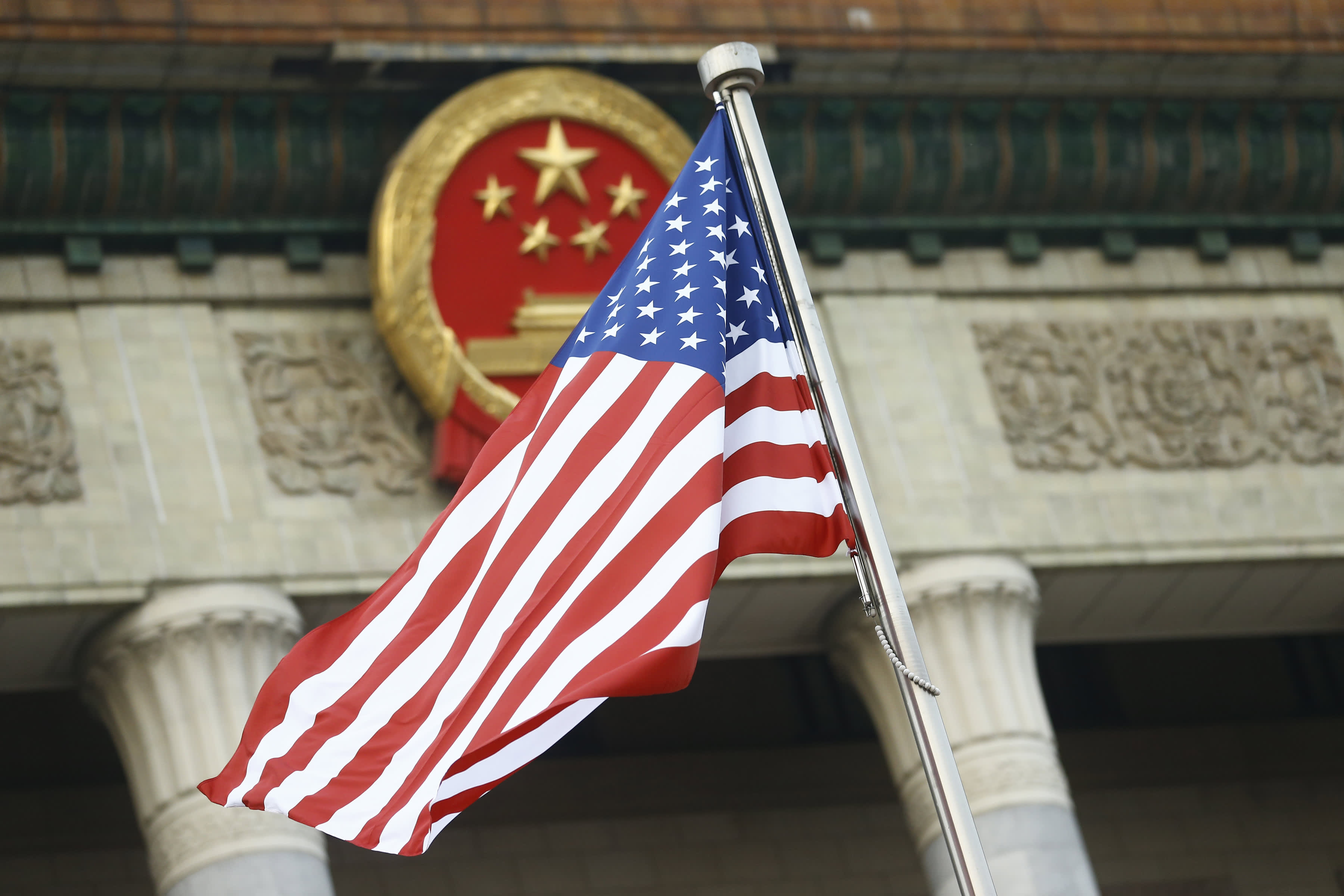The U.S. flag flown at a welcoming ceremony between Chinese President Xi Jinping and U.S. President Donald Trump in 2017.
Thomas Peter | Getty Images
President Joe Biden’s team will use “all the tools available” to combat China’s unfair trading practices, according to a report describing the new US government’s trade agenda.
The document released on Monday does not specify the tools the government will use, but it formalizes statements made by Biden and his team members in recent months about how they will deal with China and other trade priorities.
“Facing China’s challenge will require a comprehensive strategy and a more systematic approach than the fragmented approach of the recent past,” says the report.
“The Biden government is conducting a comprehensive review of the US trade policy towards China as part of the development of its overall strategy for China,” he added.
The report outlined some “harmful actions” by China, such as barriers to restrict market access, “government-sanctioned forced labor programs”, as well as unfair subsidies.
“They also include coercive technology transfers, illicit acquisition and infringement of American intellectual property, censorship and other restrictions on the internet and the digital economy, and a failure to provide treatment to American companies in various sectors comparable to the treatment that Chinese companies have. receive in these sectors in the United States, “said the report.
Collaboration with allies
The Biden government will cooperate with partners and allies to ensure that China meets its trade obligations, the report said.
The government will also make it “a top priority” to address China’s alleged forced labor programs that target Uighur Muslims and other minority groups, the report said.
The report is released at a time when Katherine Tai, Biden’s nominee for U.S. Trade Representative, is awaiting confirmation from the Senate.
Tai said on Monday that he will work to resolve a number of issues relating to Chinese trade and economic practices – including intellectual property protection, market access restrictions and censorship, Reuters reported.
She said she would explore “a wide range of options” to resolve these problems, including through bilateral negotiations, but “will not hesitate to act if these negotiations prove to be ineffective,” the news agency said.
Tai made these comments in written responses to the senators’ questions after his confirmation hearing last week.
US-China trade struggle
If confirmed, Tai will inherit a long list of unresolved trade and tariff disputes from former President Donald Trump’s government.
The list includes high tariffs that the U.S. and China imposed on each other’s products during Trump’s term, as well as late purchases of U.S. products in “phase one” of the trade agreement.
During his confirmation hearing last week, Tai said tariffs are a “legitimate tool” to contain China’s state-owned economic model, Reuters reported. But she did not threaten new tariffs and said that China needs to fulfill its commitments in phase one of the deal, the news agency reported.
The trade pact signed by the US and China last year interrupted a tariff struggle that threatened the global economy. Among other things, the deal requires China to buy $ 200 billion more in U.S. goods and services, in addition to 2017 purchases.
So far, China has failed to buy the required quantities of American products stipulated by the trade agreement, data showed by the Peterson Institute for International Economics.
